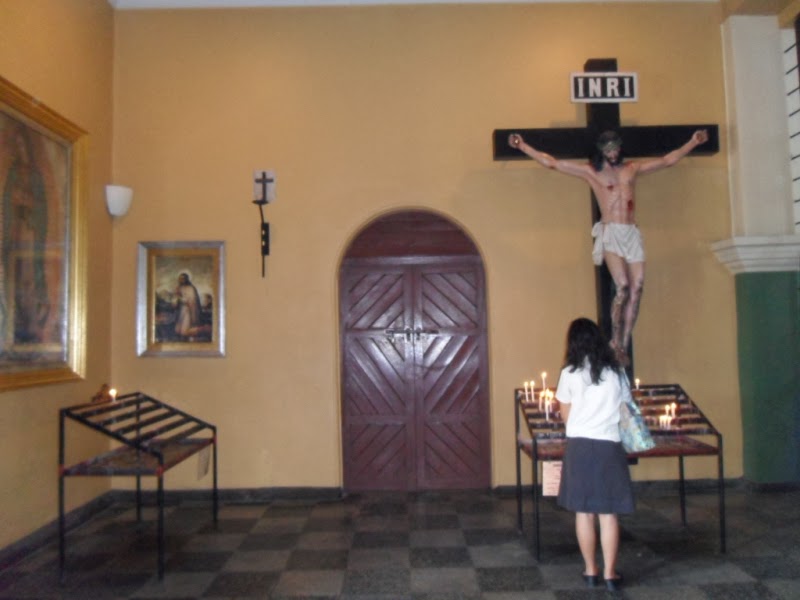gratefulness 2 - 28th Sunday C 2013
In
our gospel today the ten lepers shouted to Jesus their plea, Jesus have pity on
us; Master, have mercy on us. To ask for
mercy is more than just to beg for a feeling of compassion. Mercy is not just heartfelt sorrow, mercy is
not just an empathy for the suffering.
Mercy goes further. Mercy seeks
to remove suffering. When a person asks
for mercy he is asking that his suffering be taken out, that his suffering be
removed. A merciful person shares in the
suffering of another and he will do everything in his power to take away the
misery of the other, even to take it upon himself. This is what the ten lepers begged from
Jesus. By saying, “Lord have mercy,”
they were begging Jesus, they were begging God to remove their pain. Only God can dispense mercy, and mercy can be
asked only from God, for only God can remove suffering.
In
our first reading when Naaman asked to be relieved of his suffering he went to
Elisha the prophet. Here he was the
great Syrian general, but Elisha would not even meet him face to face. Instead the prophet sent a messenger to
instruct Naaman what he will do to be healed.
For Elisha dispensing mercy was the realm of God and not his. When Naaman was healed he wanted to give a
cartload of treasures he brought with him to thank Elisha the prophet, but
Elisha would have none of it. Again to
Elisha it was clear, mercy was not within his power to dispense but God’s.
Elisha
knew that he can only feel pity for Naaman, he can only feel empathy towards
his suffering and pain but only God can be merciful to Naaman because only God
can remove suffering.
And
this is my point. Naaman is not the
example of gratefulness even if he was willing to donate, to give as a gift a
cartload of treasures in thanksgiving. No,
the example of gratefulness is Elisha.
Why? because Elisha knew his
place, he did not feel entitled. He does
not go out of his tent to tell Naaman, “you owe it to me that you got healed of
leprosy.” No. He will not even accept a gift for bringing
about the healing of this great Syrian general, for God alone can take away
suffering, not Elisha.
The
enemy of gratefulness is the feeling of entitlement to something. I deserve
this, why should I thank you? You owe it
to me, why should I be grateful?
Entitlement is the enemy of gratefulness.
In
our gospel today it is emphasized by Luke that it was a Samaritan who came back
to thank the Lord. The nine were
Jews. The nine were the chosen people,
the nine were the privilege class, the nine where especially loved by God. But here is a Samaritan, a hated Samaritan,
an outcast Samaritan who was healed with the nine Jews, who, on the way to show
himself to the priest became conscious that his was just a free ride.
Come
to think of it, there are many instances of the same thing in my life, and
perhaps in your life, things we didn’t deserve, things we have not really
worked for, things we have not earned but is really ours for free.
That
is why we come frequently to mass, to celebrate the Eucharist. Eucharist means thanksgiving. In reality there is no such thing as a
thanksgiving mass, for every mass is a thanksgiving and people who celebrate it
often are probably conscious that there are so many things in their lives that
are undeserved, that there are so many things in their lives that comes solely
from the mercy of God, who alone can take away our suffering.

Comments